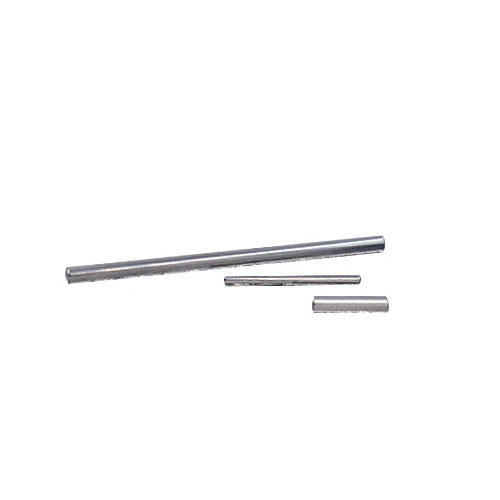Characteristics of stainless steel dowel pins
2024-02-03
A stainless steel dowel pin is a type of dowel pin made specifically from stainless steel, a corrosion-resistant and durable alloy. Stainless steel is composed primarily of iron, with chromium being a key alloying element. The inclusion of chromium provides stainless steel with its corrosion-resistant properties, making it suitable for use in various environments, including those with exposure to moisture and harsh chemicals.
Key characteristics of stainless steel dowel pins:
1. Corrosion Resistance: The primary advantage of using stainless steel for dowel pins is its excellent corrosion resistance. This makes stainless steel dowel pins suitable for applications where exposure to moisture, chemicals, or corrosive substances is a concern.
2. High Strength: Stainless steel dowel pins are known for their strength and durability. They can withstand significant loads and provide reliable support in various applications.
3. Hygienic and Aesthetic Qualities: Stainless steel is often chosen for its hygienic properties, making it suitable for applications in the food and pharmaceutical industries. Additionally, stainless steel has an attractive appearance, making it suitable for applications where aesthetics are important.
4. Temperature Resistance: Stainless steel dowel pins can withstand a range of temperatures, making them suitable for use in both high and low-temperature environments.
5. Precision Dimension: Like other dowel pins, stainless steel dowel pins are manufactured with precise dimensions to ensure accurate alignment and a secure fit between the joined components.
6. Variety of Grades: Stainless steel comes in various grades, and the choice of grade depends on the specific requirements of the application. Common grades include 303, 304, 316, and 416, each with its own set of properties.
Stainless steel dowel pins are used in a wide range of industries and applications, including manufacturing, aerospace, automotive, marine, and medical equipment. Their corrosion resistance and durability make them a preferred choice in situations where maintaining the integrity of the material is crucial for long-term performance and reliability.



